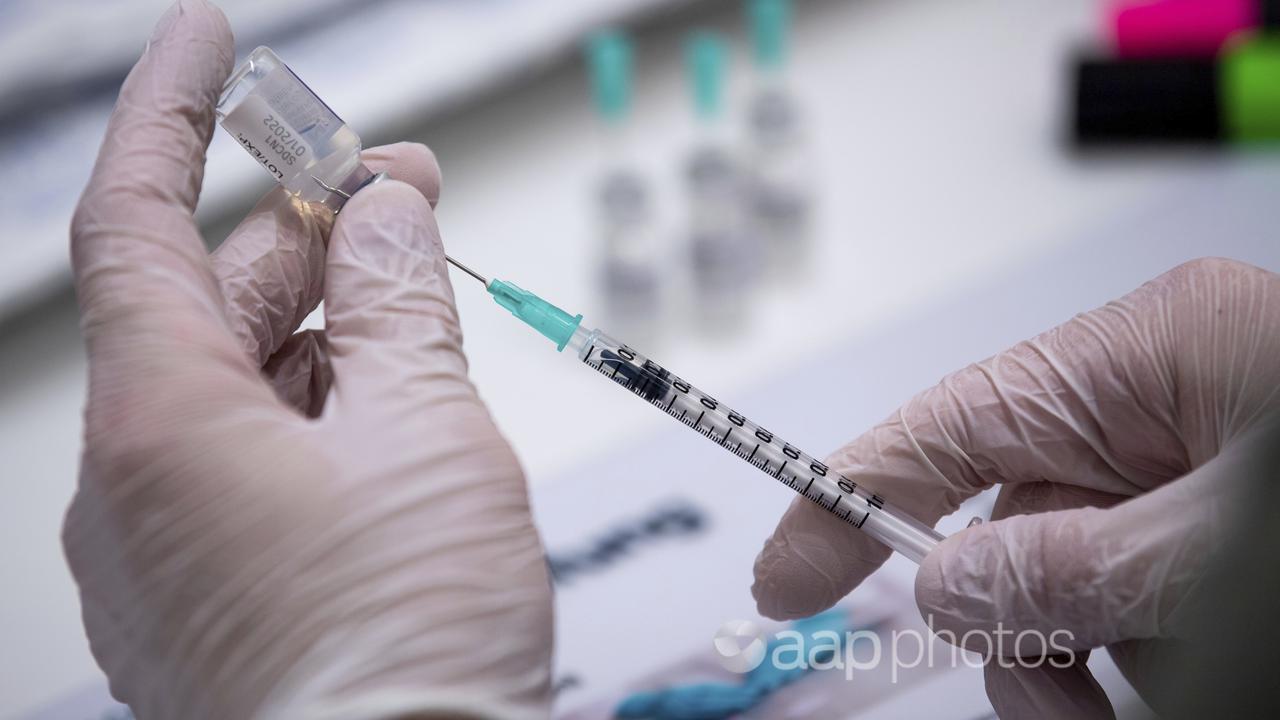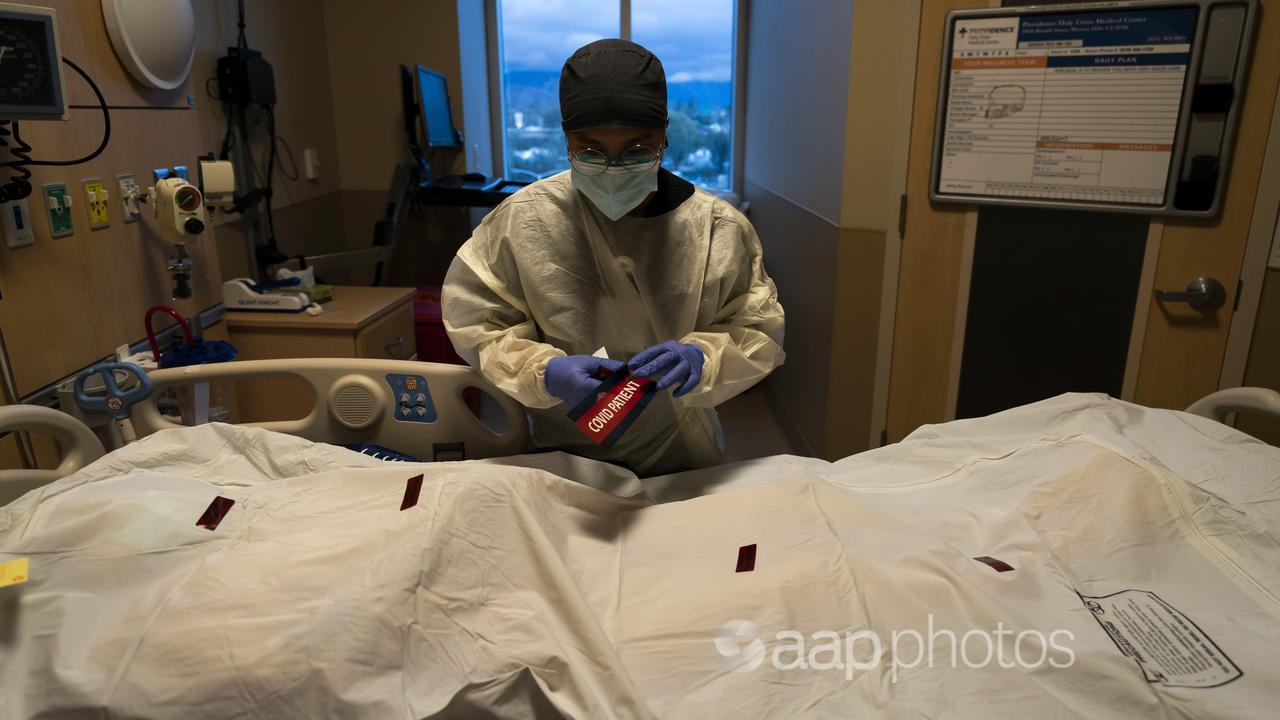An anti-vaccine activist claimed at a public forum held by US health authorities that it was “a lie” to say that vaccines don’t cause autism. The man repeats a series of claims that have been addressed and rebutted multiple times.
The 2020 speech in which the claim was made resurfaced on an anti-vaccine mandate Facebook page in March 2022 (archived without the video). The post’s text reads: “My old mate Kevin dropped this epic speech to government officials back before everyone started waking up to what was going on”. Other examples are here and here.
“Kevin” is a reference to the speaker in the video, who identifies himself as Kevin Tuttle, and says that that he is a former Air Force officer and president of a group called “the Adverse Events and Recovery Information Center”.
Mr Tuttle was speaking at a public meeting of the US Centers for Disease Control and Prevention’s Advisory Committee on Immunization Practices (ACIP) held in February, 2020 in Atlanta, Georgia. Three regular meetings of the ACIP are held annually, and members of the public can request to make an oral public comment lasting no longer than three minutes.
Mr Tuttle was given three minutes to speak at the February 2020 ACIP, as shown on this CDC video (video mark 5min16sec).
During his address he tells the committee members that they will face “Nuremberg tribunal-like trials” for “crimes against humanity”. He then makes a series of claims about what he says are “lies” by the committee and the CDC. At the 2min37sec mark Mr Tuttle says, “‘vaccines don’t cause autism’ – that is a lie”.
Mr Tuttle’s claim is contradicted by research from the CDC and the US National Academies of Sciences Engineering Medicine which has found multiple times that vaccines do not cause autism.
Australian medical experts also say the claim made by Mr Tuttle is wrong.
Professor Robert Booy, a senior professorial fellow at Australia’s National Centre for Immunisation Research and Surveillance, told AAP FactCheck that there was no scientifically proven link between vaccination and autism.
“The scientific evidence from many forms of research – lab-based and epidemiological – all point to no association between autism and vaccination,” Prof Booy said in a phone interview.
He said the conspiracy theory that there was a link persisted in a small number of people and logic was “not amenable” to them.
“I was doing research on vaccines in the UK when the emergence of the theory that MMR vaccine was linked to autism arose from Professor Andrew Wakefield,” Prof Booy said. “I was a member of a group that responded within one week saying the quality of his research was very poor.”
Wakefield was the main author of a study published in The Lancet in February 1998 claiming an association between the MMR (measles, mumps, rubella) vaccine and autism. The British General Medical Council later found the study had been undertaken unethically and Wakefield was struck off the medical register in 2010. The study was retracted by The Lancet in 2012.
A 2004 Sunday Times report by journalist Brian Deer exposed multiple problems with the study, including funding issues, questions over the selection of participants and non-disclosure of conflicts of interest.
There have been multiple scientific studies conducted rejecting possible links between autism and MMR vaccines since the first claims were made, such as here, here, here, here, and here.
On possible links between vaccines other than MMR and autism, a 2014 international analysis of five cohort studies involving 1,256,407 children and five case-control studies involving 9920 children found that the available evidence revealed no relationship between vaccination and autism.
Dr Rachel Dunlop, a medical researcher at Brain Chemistry Labs in Wyoming, USA who has written about the anti-vaccination movement, told AAP FactCheck that after multiple studies over many years involving tens of thousands of children, there is still no evidence for a link between vaccines and autism.
“In science, nothing is 100 per cent, so you can never say ‘vaccine(s) 100 per cent do not cause autism’ but you can say there is no good evidence to support this hypothesis (and I emphasise ‘good evidence’ because there is plenty of junk ‘science’ out there purporting to show a link,” she said in an email.
Dr Dunlop referred to a 2011 publication Adverse Effects of Vaccines: Evidence and Causality, which reviews the epidemiological, clinical, and biological evidence regarding adverse health events associated with specific vaccines.
The publication says: “For each possible adverse event, the report reviews peer-reviewed primary studies, summarizes their findings, and evaluates the epidemiological, clinical, and biological evidence. It finds that while no vaccine is 100 percent safe, very few adverse events are shown to be caused by vaccines. In addition, the evidence shows that vaccines do not cause several conditions. For example, the MMR vaccine is not associated with autism or childhood diabetes.”
Claims that vaccines cause autism have debunked broadly outside of medical studies, such as here and here.
The Verdict
The claim that vaccines cause autism is false.
The claim is not supported by medical experts and numerous studies have rejected any link.
The claim was popularised in a 1998 study which has since been debunked and retracted.
False – The claim is inaccurate.
* AAP FactCheck is an accredited member of the International Fact-Checking Network. To keep up with our latest fact checks, follow us on Facebook, Twitter and Instagram.
All information, text and images included on the AAP Websites is for personal use only and may not be re-written, copied, re-sold or re-distributed, framed, linked, shared onto social media or otherwise used whether for compensation of any kind or not, unless you have the prior written permission of AAP. For more information, please refer to our standard terms and conditions.


















